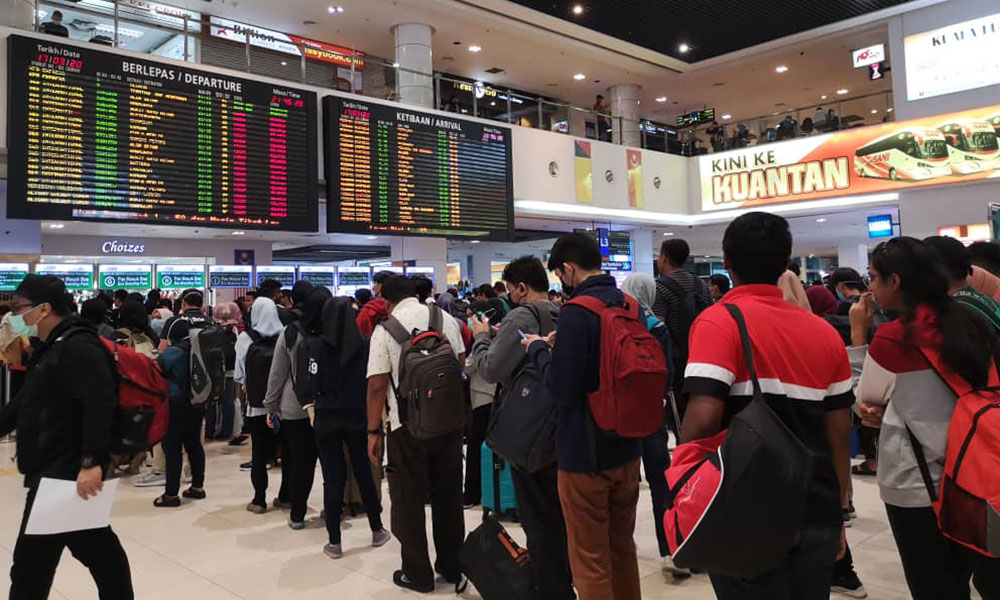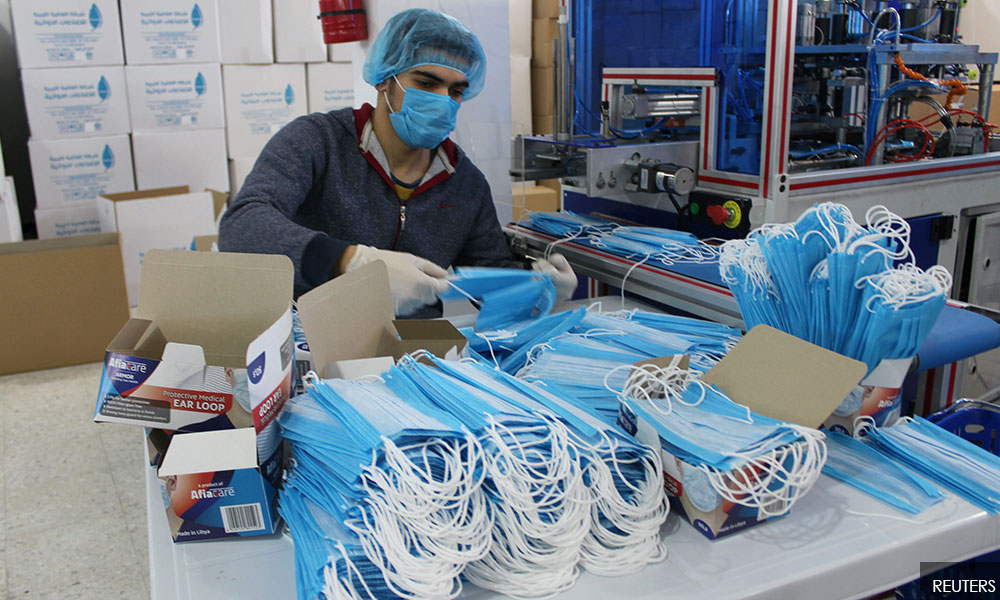PKR president Anwar Ibrahim has called on the government to channel “complete and not confusing information” to the media to lessen panic in relation to the Covid-19 outbreak.
In a statement posted on his Facebook page, he said problems have arisen from poor coordination as well as the government’s machinery in channelling information.
“I urge the government to overcome this problem. The government should be more responsible and ethical at a time when we are facing such a crisis.
“The media should be the people’s main point of reference and the country should be given access accordingly,” he said.
Prime Minister Muhyiddin Yassin on Monday night announced there would be a movement control order in which Malaysians won’t be allowed to leave the country nor foreigners be allowed in, non-essential businesses and services must close and most importantly, a ban on public gatherings – beginning today until March 31.
While Muhyiddin’s order was well-received and hailed as decisive action on social media, it lacked details and its implementation quickly unravelled in the 24 hours after the announcement.
The lack of clear communication had led to more and even larger unintended gatherings – conditions that are suitable for the potential spread of Covid-19.
The National Security Council (NSC) only issued a “Frequently Asked Question (FAQ)” to clarify Muhyiddin’s speech 14 hours later, on Tuesday at 2.10pm. And that was the first of three different versions of FAQ issued throughout the day.
An update was issued at 4.10pm and another at 7.30pm. While some updates were understandably to provide clarification, others were complete reversal or change of positions from earlier versions.
The most controversial part of the NSC FAQ was the 17th question, where it asked all public and private university students to return home in the first version, only to say they have an option to stay on campus in the third version.
That had serious implications, as students had vacated their dormitories and headed to bus stations to return to their hometowns. By the time NSC changed its instruction at 7.30pm, it was too late.
Crowded scenes were seen at bus stations, particularly at Terminal Bersepadu Selatan (TBS) in Bandar Tasik Selatan, Kuala Lumpur.
Medical and infectious disease experts observed the exodus from Klang Valley unfold with alarm.
“What apparently happened in TBS today (yesterday) is exactly what we didn’t want to happen.
“Mass gatherings at bus terminals and then folks going all over the country from the active Covid-19 area in the country. Are we potentially spreading it nationwide?” former Health Ministry deputy director-general Dr Christopher Lee said on Twitter. MKINI
‘Confusing instructions’ – Amanah Youth asks what PM and ministers doing
Amanah’s youth wing is wondering what Prime Minister Muhyiddin Yassin and his ministers are doing, following confusing instructions as well as u-turns made in relation to the Covid-19 outbreak.
“The country is facing such a huge crisis, yet the government seems to have lost its direction,” said Amanah Youth vice-chief Shazni Munir Mohd Ithnin (above) in a statement today.
“Ministers as well as deputy ministers seem to be moving and taking action so slowly, like that of a snail’s pace, maybe even slower than that.
“So don’t be angry if people start asking, what are Muhyiddin and his ministers doing right now?”
Shazni took note how Inspector-General of Police Abdul Hamid Bador had rescinded a rule requiring the public to notify the police if they wish to travel inter-state during the movement control order period, which has come into effect today.
Hamid had said he did so after large crowds began gathering from last night at police stations across the country.
Shazni also pointed out how all public and private universities had asked all students to return home, only for Higher Education Minister Noraini Ahmad to then clarify that students had the option to stay on campus.
“And while the chief secretary to the government has responded saying that pro-Pakatan Harapan menteri besar and chief ministers were not invited to a meeting to coordinate efforts to combat Covid-19 with the prime minister yesterday, we still do not know whether there has been thorough coordination done at every ministry and the role of all ministers in handling this.”
The prime minister’s order was well-received and hailed as decisive action on social media, but it lacked details and its implementation quickly unravelled in the 24 hours after the announcement.
The lack of clear communication had led to more and even larger unintended gatherings – conditions that are suitable for the potential spread of Covid-19.

The National Security Council (NSC) only issued a “Frequently Asked Question (FAQ)” to clarify Muhyiddin’s speech 14 hours later, on Tuesday at 2.10pm. And that was the first of three different versions of FAQ issued throughout the day.
An update was issued at 4.10pm and another at 7.30pm. While some updates were understandably to provide clarification, others were complete reversals or change of positions from earlier versions.
The most controversial part of the NSC FAQ was the 17th question, where it asked all public and private university students to return home in the first version, only to say they have an option to stay on campus in the third version.
That had serious implications, as students had vacated their dormitories and headed to bus stations to return to their hometowns. By the time NSC changed its instruction at 7.30pm, it was too late.
Crowded scenes were seen at bus stations, particularly at Terminal Bersepadu Selatan (TBS) in Bandar Tasik Selatan, Kuala Lumpur.
The Attorney-General’s Chambers (AGC) today published a federal gazette that bars individuals from travelling to another place designated as an infected area. MKINI
All states gazetted as Covid-19-hit area, ban on inter-state travelling
The AGC also gazetted all states and three federal territories as infected area.
“No person shall make any journey from one place to another place within any infected local area,” read the gazette.
However, there is an exception for those on official duty and those involved in essential services.
Essential services refer to water, electricity, energy, telecommunications, postal services, transport, maritime, fuel, gas, lubricants, broadcast, financial services, banking, healthcare, pharmacies, fire and rescue, prisons, ports, airports, security, defence, cleaning and supplying of food.
This is in line with the government’s decision to impose a nationwide movement control order, or partial shutdown, from today (March 18) to March 31.
The police instructed the public to notify the nearest police station for inter-state travelling during the control movement order.
However, the cops were forced to suspend the move after a huge crowd gathered at bus terminals and police stations in a bid to make travel arrangements before the movement control order came into effect.

Meanwhile, the AGC, in another federal gazette published yesterday, banned the export of surgical/medical face masks.
This included one-ply earloop face mask, two-ply earloop face mask, three-ply earloop/headloop/head tie-on face mask and N95 face mask.
The government had repeatedly stressed the supply of face masks is adequate but the people on the ground are facing difficulty in getting them.
MKINI



No comments:
Post a Comment
Note: Only a member of this blog may post a comment.